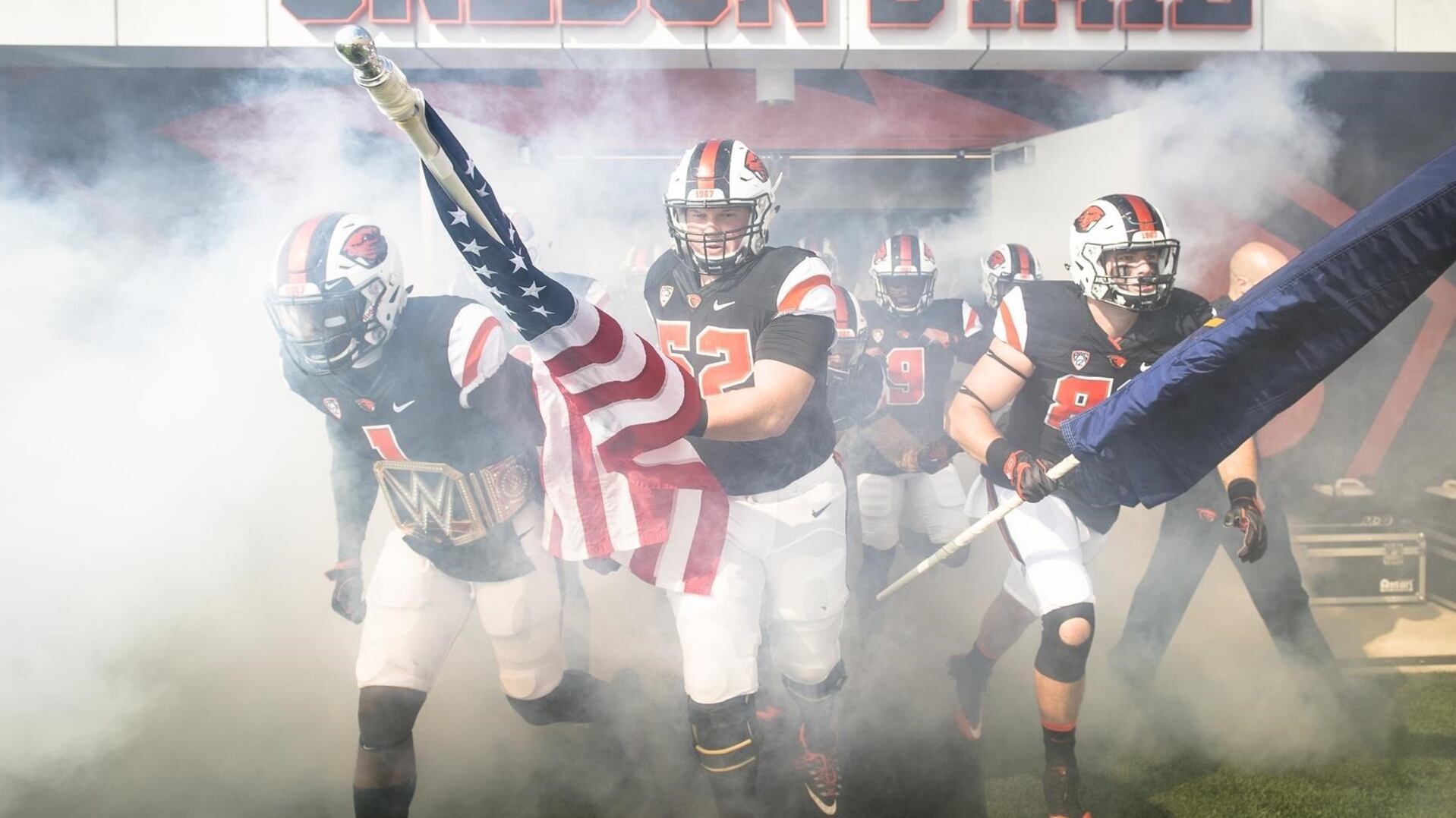Effective immediately, the University of Oregon and Oregon State University will no longer refer to rivalry games between their athletic teams as the "Civil War."
"We must all recognize the power of words and the symbolism associated with the Civil War," UO director of athletics Rob Mullens said in a statement. "This mutual decision is in the best interests of both schools, and I would like to thank [OSU athletic director] Scott Barnes for his diligence as we worked through this process. We look forward to our continued and fierce in-state rivalry with Oregon State in all sports."
The state's two big rival universities have traditionally referred to contests between their football, basketball and baseball teams, among others, as Civil War games.
The decision to drop the reference comes in the same week that UO trustees voted unanimously to change the name of the university's oldest building, Deady Hall. That building was named after Oregon's first federal judge, Matthew Deady, who espoused pro-slavery views in the years leading up to Oregon's attaining statehood.
The two universities' men's basketball teams have played each other an NCAA record 354 times. If their football teams can play this November, as they traditionally do, that meeting would be their 124th, the fifth-longest-running rivalry in NCAA football.
In making the announcement today, University of Oregon officials credited the change to former Ducks quarterback Dennis Dixon, who played in Eugene from 2004 through 2008 and was the PAC-12 offensive player of the year his senior season. Dixon, who is Black, later played in the NFL.
The universities agreed to make the change after discussions with officials and and current and former athletes from both campuses.
"I want to acknowledge and thank the current and former student-athletes who raised concerns about the historic name of the rivalry games played between our two institutions," UO President Michael H. Schill said. "We need to make this change to align the words and symbols we use around athletic endeavors with our shared campus values of equity and inclusivity. While the name of our annual game might change, it will absolutely continue to be one of the great rivalries in college sports."

